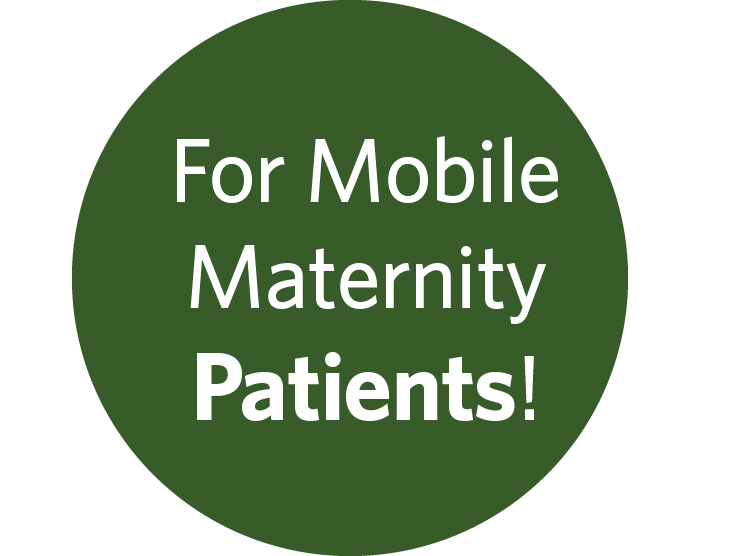
About the Project
The Mobile Maternity (MoM) project is a pilot initiative to increase primary health care capacity and improve patient and population outcomes by developing and implementing an obstetrics telehealth service that will positively impact physicians and their patients.
Mobile Maternity allows the patient to “meet” with their out-of-town Obstetrician using a computer monitor, video camera and microphone. This permits the patient and the specialist doctor to visit as if they were both in the same room. In addition, it coordinates the ability to use a tripartite model for patient visits where the patient, primary care provider and specialist can all “meet” through the use of videoconferencing.
- Timeline: April 2016 – Ongoing
- Communities / Where:
- Christina Lake, Grand Forks, Kaslo, Nakusp, Nelson, New Denver/Slocan, Creston, Grey Creek, Trail, Greenwood, Campbell River, Port Hardy, Port McNeill, Prince George and Northern Health Authority
- Funding Agency:
- Specialist Services Committee, Doctors of BC
- Co-Leads:
- Jude Kornelsen (Centre for Rural Health Research, UBC)
- Shiraz Moola, OB/GYN
- Robin Johnson, OB/GYN
Rationale for Initiative
Rural and remote residents of BC face challenges of accessing health care close to home, particularly when specialist care is required. When a patient requires complex care that exceeds the scope of primary care practitioners, referral or transfer to the nearest specialist centre is the only option, even for non-emergent situations. In some instances, patients are unable or choose not to travel due to a combination of financial and/ family constraints or significant challenges associated with remote geographical locations. Emerging evidence reflects the physiologic morbidities and the substantial cost for both mothers and newborns who need to travel significantly to access care. Further, rural family Physicians and midwives have expressed the need for a more collaborative maternity-care infrastructure, whether or not they do planned local deliveries.
Aim of Project
- Understand the elements of relationships between general practitioners (GP) and specialist physicians (SP)
- Improve collegiality between the service providers
- Develop models of collaboration, embrace new technologies, service models, and payment modalities
- Foster patient self-management and reduce unnecessary burden on the patient and their family
Mobile Maternity benefits patients by:
- Providing access to specialist doctors’ services in the convenience and comfort of their community
- Keeping them close to home
- Reducing travel time and costs for them and family members
- Giving them a choice to meet with the obstetrician specialist by Mobile Maternity or in person
Project Progression
Data Collection 1.0
- Interviews & Focus Groups were conducted in five communities with 25 patients and care providers as a means of evaluation of the MoM project. The interviews were led by the Principal Investigators and MoM team focusing on questions relating to the cost-benefit of the MoM project.
Mid-point Analysis
The analysis of the interview mid-point data has revealed an overarching appreciation for the MoM project. A few of the themes that emerged from the interviews with care providers included:
- The acknowledgement of the overall shift in health care towards greater use of telehealth
- A willingness to use any readily available technology to establish a video call (i.e., iPhones, etc.)
- A low tolerance for technological difficulties
The patient interviews highlighted the desire for the convenience of not needing to drive to attend an appointment as well as other personal savings including not needing to take time off from work:
“Lost wages, you know a day off work, going and getting, eating lunch because it’s coming between, the waiting time to sit in the office, all of that like it was literally would’ve saved me a couple hundred dollars and it’s just to – so simple, I mean it’s so simple.”
In addition, the preference for use of video compared to phone was noted as it creates a better opportunity for connection:
“I really like being able to see someone when I’m talking to them, um, it’s just, I find it a little bit more personal, and there’s a little bit more connection where you can see somebody’s face when you’re talking to them, as opposed to just hearing a voice on the other side of the phone.”
Providers and patients aligned on the value of tripartite consultations as this type of visit reduces the potential of miscommunication:
“That gives us the ability to be all on the same page in how to deal with certain circumstances…”
Impact of COVID-19
- The recent acceleration in the use of virtual technology and virtual care, due to COVID-19, the MoM project has opted to explore topics ranging from the shift in virtual care to future forward use and optimization of virtual care post-COVID. These topics provide the opportunity to reach out to primary care providers and specialists to determine what their needs are for providing virtual rural maternity care as well as how they would like to see virtual care develop or change for future use.
Data Collection 2.0
- The Virtual Needs Survey was created and distributed to rural or remote maternity care providers in British Columbia to assess the needs of maternity care practitioners to provide virtual care. A total of 124 responses were recorded and the information gathered from the survey aims to develop an understanding of an optimal virtual system that meets the needs of rural patients and providers.
- Interviews & Focus Groups were completed with various primary care providers (general practitioners, midwives, etc.) and obstetrical specialists practicing in rural or remote contexts. The 29 interviews/focus groups were conducted by the Principal Investigators and MoM team via Zoom and were guided by questions ranging from the use of virtual care pre-COVID, the use of virtual care in COVID times, and the retention and optimization of virtual care for future practice.
Data Analysis & Publications
- Analysis of the Virtual Needs Survey data
- Analysis of Secondary Interview and Focus Group data set
- Summary reports
- Peer reviewed publications
Please email MoM Research Assistant Daria Nowaczek at daria.nowaczek@ubc.ca with any questions, comments, or feedback.






